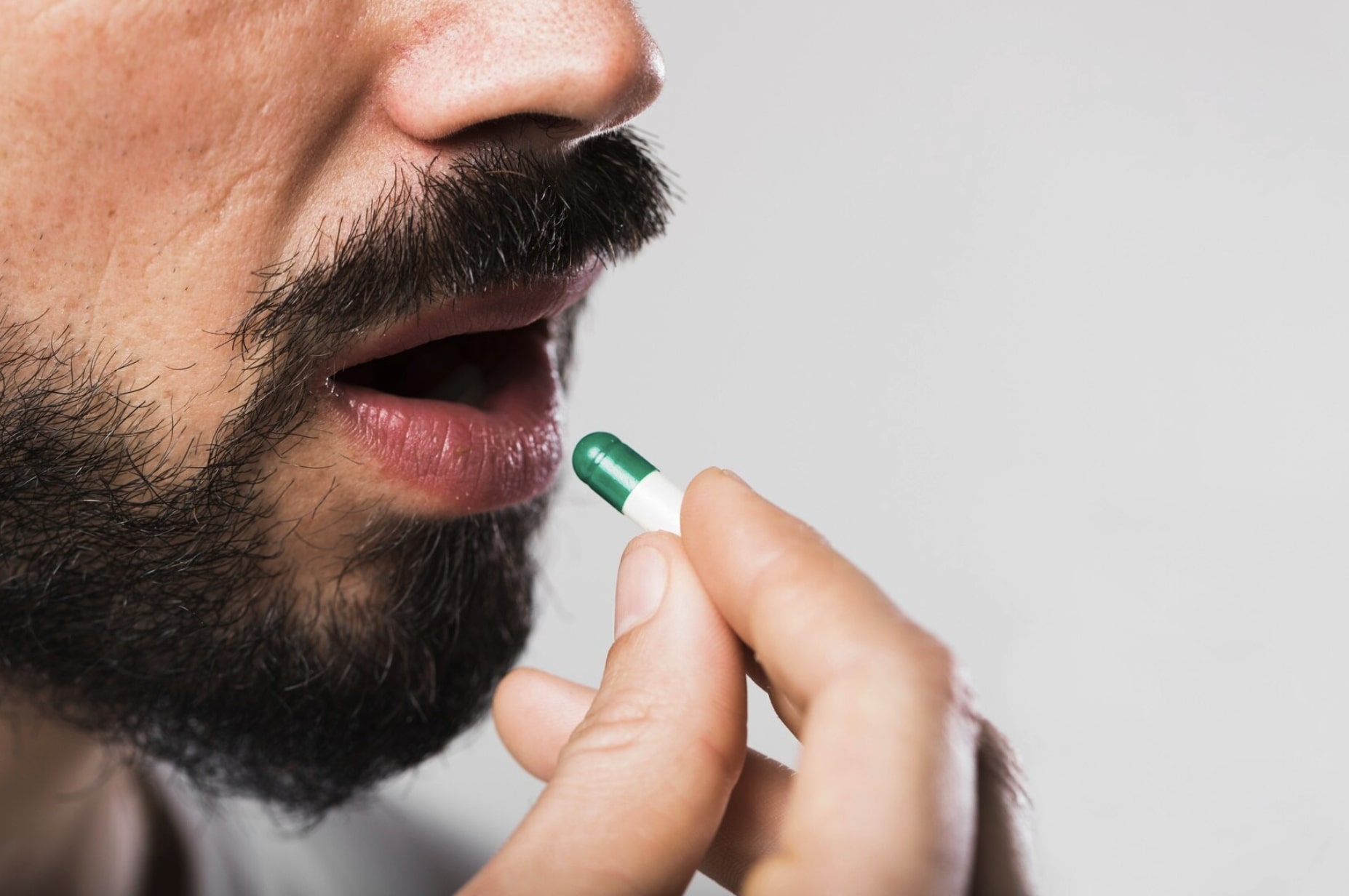The issue of low testosterone, frequently referred to as "Low T," is a growing concern among men not just in America but globally. An increasing number of men are seeking medical interventions such as testosterone replacement therapy (TRT), offered in various forms like injections, gels, and skin patches, to rejuvenate their overall health and wellness. The appeal of TRT lies in its promise to reintroduce vitality and numerous other benefits, but it raises an important question: How safe is TRT for those who undergo it?This article aims to delve into the intricacies of Low T and explore the reasons behind the rise in TRT prescriptions. We will also address the potential safety concerns associated with TRT that candidates need to consider. To learn more about Low T, we invite you to visit our informational page here or, if you're considering TRT, sign up for a complimentary consultation on our TRT San Diego page.
WHAT IS LOW T AND WHAT CAUSES IT?
Testosterone is often considered the quintessential male hormone. As the primary androgenic steroid in humans, it is crucial for fostering the development of characteristics often associated with masculinity, such as a deeper voice or facial hair.
Beyond its role in sexual differentiation, testosterone's anabolic effects are influential across various physiological aspects.Insufficient levels of testosterone can make even the most mundane daily tasks feel burdensome. The discomfort of dragging oneself from bed, devoid of energy or the drive to tackle the day's challenges, is an unwelcome sensation for any individual.
While everyone enjoys the occasional indulgence of a "lazy day" as a break from the continual rush of life, persistently low motivation and lethargy might signal an underlying concern that warrants attention. Low testosterone (Low T) can stem from a multitude of causes, often operating stealthily. Common lifestyle habits like inadequate sleep and persistent stress are known to deplete testosterone levels in men. Similarly, excessive alcohol consumption and obesity contribute to lower testosterone.
Lifestyle choices significantly influence testosterone levels. However, it's important to recognize that Low T can also result from factors beyond one's control, such as pituitary disorders or injuries that critically damage the testicles. It's crucial to understand that the decision to use Testosterone Replacement Therapy (TRT) should be made with careful consideration and guidance from a qualified healthcare professional, who can evaluate this through thorough laboratory analysis.
If your low testosterone levels are due to modifiable lifestyle factors such as an inadequate diet, insufficient sleep, or a lack of physical activity, it is vital to first address these areas proactively before considering TRT.
On the other hand, if you consistently face low testosterone levels despite maintaining a healthy lifestyle, then TRT may be a suitable option for you. In such instances, TRT could be a safer alternative with potentially beneficial outcomes.
INDICATIONS OF LOW T (TESTOSTERONE)
Over the years, there's been a significant shift in men's health awareness, particularly concerning testosterone levels. Traditionally, there was limited awareness among men about the role of testosterone and how deficiencies could lead to serious health issues.Nowadays, thanks to groundbreaking discoveries in medical science, there's a heightened understanding of 'low T' and its widespread impact. Endocrinologists and pharmaceutical companies have stepped up their efforts in educating the public, thereby increasing the number of men who recognize the importance of monitoring their testosterone levels. Monitoring testosterone is particularly crucial for men over 30.
Research indicates that testosterone levels begin to gradually diminish at this stage in life, which makes regular check-ups a smart health strategy.So, what are the telltale signs that signal a potential low testosterone level? Men experiencing low testosterone levels may encounter a range of symptoms that can affect their physical, emotional, and mental health. Below is a comprehensive rundown of what one might observe:
- Challenges with achieving or maintaining an erection, known medically as erectile dysfunction.
- A noticeable decline in sexual desire or libido.
- A reduction in muscle mass and strength makes it harder to maintain muscle tone.
- Persistent feelings of exhaustion, even after obtaining sufficient rest.
- Emotional disturbances such as depression and anxiety may become prevalent.
- Difficulty focusing or remembering is often referred to as brain fog.
- Physical changes to the testes could appear smaller or show signs of shrinkage.
- A depletion of body hair, including that in the pubic region.
- Anemia is characterized by a lack of healthy red blood cells.
- Fertility issues, impacting the ability to conceive.
- An increased risk of bone fragility or weakness leads to brittle bones.
- A gain in body fat alters body composition.
- Sleep disturbances, including sleep apnea or other related conditions.
- The uncommon development of breast tissue in men is a condition known as gynecomastia.
If you're noticing various symptoms that may suggest low testosterone (low T), it's crucial to obtain a definite diagnosis through the necessary blood tests. This article will later address the importance of confirming low T before considering testosterone replacement therapy (TRT), as this treatment is most beneficial and safe when appropriately prescribed for low T conditions.Depression, for example, can manifest as a symptom of several mental health disorders. In such cases, attempting to alleviate a psychological issue through TRT could lead to unsatisfactory outcomes, as it is not the correct treatment avenue for mental health disorders.Should you find yourself dealing with symptoms indicative of low T, reach out to Gameday Men's Health at your earliest convenience. Our certified medical professionals are ready to facilitate the proper laboratory assessments. Upon confirmation of a low T diagnosis, we are here to assist you every step of the way, ensuring you receive comprehensive care aimed at restoring your testosterone levels to an optimal state.
IS LOW T ON THE RISE?
Modern medical advancements and rigorous scientific inquiry have enhanced our understanding of the human endocrine system; however, the factors contributing to the increasing prevalence of low testosterone (low T) levels remain somewhat obscure. A body of research indicates that contemporary sedentary lifestyles, coupled with a disregard for nutritional diet choices, could be driving the uptick in low T cases.Furthermore, it is theorized that habitual exposure to synthetic chemicals, such as xenoestrogens present in a plethora of personal care products and various environmental pollutants, might be interfering with endocrine function.Certainly, we cannot dismiss the notion that men are becoming increasingly vigilant about their health today, acknowledging the significance of testosterone for their overall wellness. This shift is largely attributed to the burgeoning number of male health clinics nationwide and the rise of social media platforms. These channels offer unprecedented opportunities for healthcare professionals and pharmaceutical entities to engage with the public on a more intimate level.The prevalence of low testosterone levels has, in effect, been a widespread health concern; however, we now exhibit a greater propensity for addressing and managing the issue.
WHAT ARE THE POTENTIAL RISKS OF TRT?
Many men who suffer from low testosterone levels hold apprehensions about undergoing testosterone replacement therapy (TRT).
Questions such as the long-term safety of TRT and the possible health risks associated with it are common and warrant a deeper examination.Initial side effects from TRT, such as oily skin, acne, breast swelling or tenderness, and nocturnal sweating may affect a small proportion of men when they first begin treatment.
Typically, these symptoms diminish as the body adapts to the therapy over time.For men advancing in age and undergoing long-term Testosterone Replacement Therapy (TRT), there is a marginally higher likelihood of encountering metabolic complications, such as elevated blood pressure and cholesterol levels. However, these potential issues can be effectively managed through regular blood monitoring and careful adjustment of medications.
Healthcare providers specializing in Gameday treatments need to conduct frequent laboratory analyses for patients receiving TRT, ensuring that both metabolic and cardiovascular indicators remain within safe parameters and mitigating any associated health risks.Paradoxically, the decision to forgo addressing low testosterone levels could present more severe health threats than the administration of TRT.
Studies spanning several years indicate that men with lower testosterone tend to have a reduced life expectancy — in other words, there is a heightened risk of death from various causes — compared to those who maintain their testosterone levels within a normal, healthy range.With the progress in hormone replacement treatments, including the bioidentical hormones provided by the experts at Gameday Men's Health, numerous men experience that the benefits of Testosterone Replacement Therapy (TRT) significantly surpass any potential risks.
Deciding whether to pursue TRT should involve a collaborative discussion with your doctor. Exercise caution if you encounter healthcare professionals who hastily recommend TRT without conducting thorough blood work analysis and, if deemed essential, medical imaging to substantiate the need for such therapy.
At Gameday Men’s Health, we are committed to providing thorough diagnostics and personalized care for our clients. Each individual is carefully evaluated for low testosterone levels before proceeding with a detailed consultation delivered by a healthcare professional.In our dedication to safety and excellence in treatment,
Gameday consistently monitors PSA levels and hematocrit before recommending testosterone replacement therapy (TRT). Only if your PSA is below the threshold of 4.0 and your hematocrit is within a safe range, will TRT be considered a viable option. For hematocrit levels above 50, we require a precautionary blood donation before initiation of TRT to ensure your welfare and the effectiveness of the treatment over the long term.
At Gameday Men’s Health, our primary objective is to support the well-being of our clients, not to capitalize on their challenges. We understand that opting for TRT is a monumental decision that affects your health and quality of life. Therefore, our clinicians approach it with the utmost seriousness, striving to make your TRT experience as secure and beneficial as possible.
Depression, for example, can manifest as a symptom of several mental health disorders. In such cases, attempting to alleviate a psychological issue through TRT could lead to unsatisfactory outcomes, as it is not the correct treatment avenue for mental health disorders. Should you find yourself dealing with symptoms indicative of low T, reach out to Gameday Men's Health at your earliest convenience. Our certified medical professionals are ready to facilitate the proper laboratory assessments.
Upon confirmation of a low T diagnosis, we are here to assist you every step of the way, ensuring you receive comprehensive care aimed at restoring your testosterone levels to an optimal state.
IS TRT SAFE FOR YOU?
Overall, Testosterone Replacement Therapy (TRT) becomes significantly safer when conducted following precise diagnostic evaluations for low testosterone levels and under the supervision of a certified medical expert, like the professionals at Gameday Men’s Health.
Experiencing symptoms like fatigue, depression, or a reduced libido does not automatically indicate that you have low testosterone, nor is it sufficient to diagnose the condition. It is essential to undergo blood testing to accurately determine the underlying cause of these symptoms.
Additionally, if your blood test results show normal testosterone levels, testosterone replacement therapy (TRT) is unlikely to alleviate your symptoms. Administering testosterone when your body already produces an adequate amount could pose health risks and potentially worsen other medical conditions. It is crucial to verify any suspicions of low testosterone with appropriate blood testing before considering treatment options.
GETTING ACCURATE ASSESSMENTS FOR LOW T
Improperly analyzed blood tests or errors in results could result in an incorrect diagnosis when evaluating testosterone levels—either falsely identifying low T where it's not present or missing its diagnosis altogether.
If your initial blood work suggests further investigation, a subsequent test may be necessary to validate the results. The experts at GameDay are here to decode these findings and provide answers to your queries. In cases of low testosterone levels, which might be impacting your well-being, Testosterone Replacement Therapy (TRT) could be a viable option to contemplate.
ASK YOUR DOCTOR ABOUT YOUR CONCERNS
Maintaining open and clear communication with your physician is paramount both before initiating and throughout Testosterone Replacement Therapy (TRT). At Gameday Men’s Health, we uphold the principle that straightforward and continuous dialogue is vital to your health and safety.If you find your physician evasive or notice a lack of transparent responses regarding TRT's safety, it's possible that your well-being may not be their priority.Here are common inquiries and apprehensions that Gameday Men's Health doctors frequently address from potential TRT patients:
- Does initiating TRT therapy heighten the probability of developing prostate cancer?
- Is it advisable to commence testosterone treatment if there's a pre-existing history of heart-related issues?
- Is lifelong commitment to TRT necessary?
- What is the optimal form of testosterone delivery for treatment?
Reach out to schedule your first consultation with us at your earliest convenience. It would be our pleasure to address any inquiries or concerns you might have regarding TRT.
HAVE REALISTIC EXPECTATIONS ABOUT TRT
Gameday Men's Health offers Testosterone Replacement Therapy (TRT) that aims to restore optimal functioning, both physically and cognitively. TRT can provide a myriad of advantages for men combatting low testosterone levels. These benefits often include a revitalized libido, improved erectile quality, an increase in energy and strength, superior muscular development, and sharper mental acuity. Most men undergoing TRT report a renewed sense of well-being, contentment, and drive.











